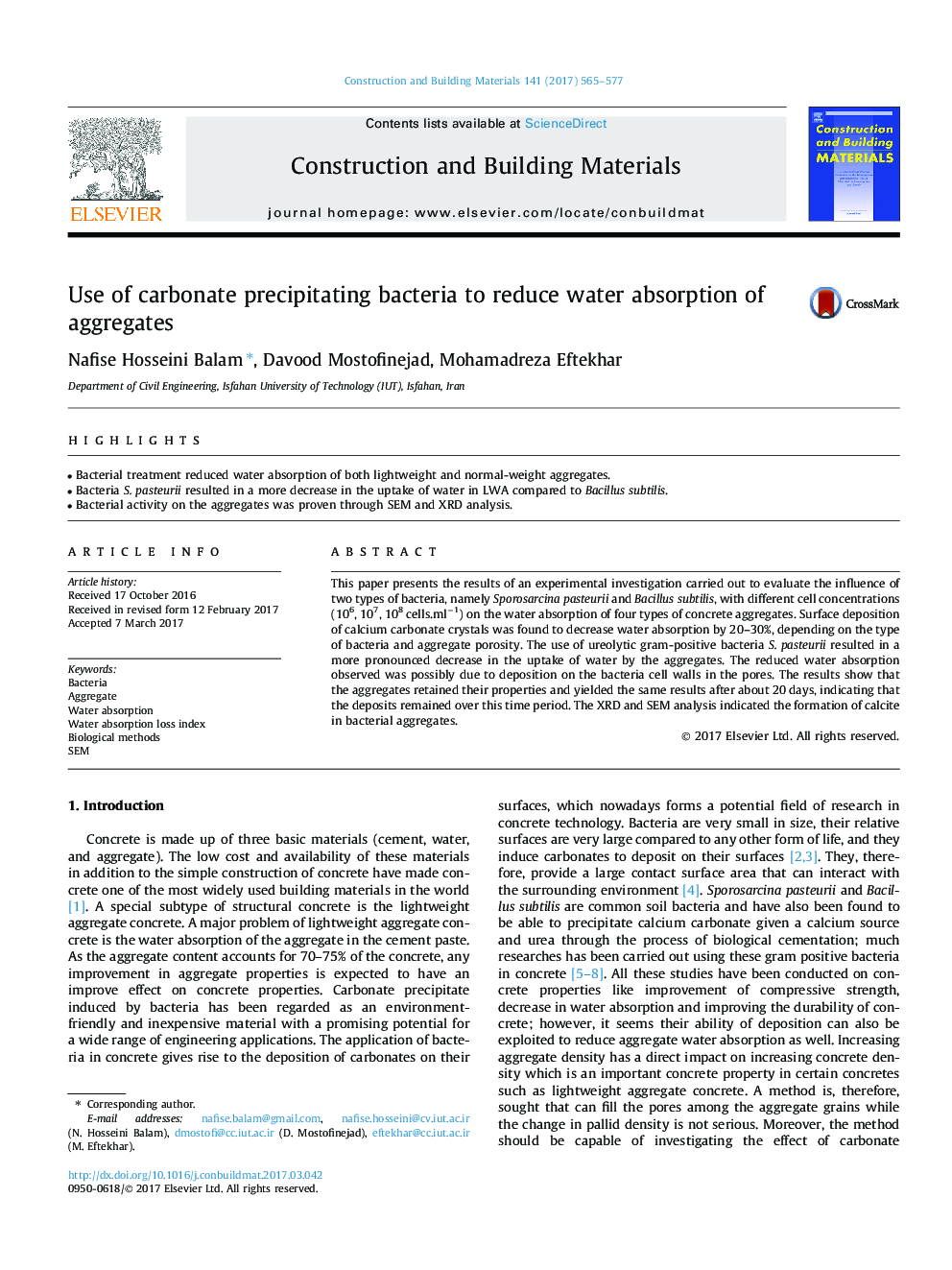| Article ID | Journal | Published Year | Pages | File Type |
|---|---|---|---|---|
| 4913411 | Construction and Building Materials | 2017 | 13 Pages |
Abstract
This paper presents the results of an experimental investigation carried out to evaluate the influence of two types of bacteria, namely Sporosarcina pasteurii and Bacillus subtilis, with different cell concentrations (106, 107, 108Â cells.mlâ1) on the water absorption of four types of concrete aggregates. Surface deposition of calcium carbonate crystals was found to decrease water absorption by 20-30%, depending on the type of bacteria and aggregate porosity. The use of ureolytic gram-positive bacteria S. pasteurii resulted in a more pronounced decrease in the uptake of water by the aggregates. The reduced water absorption observed was possibly due to deposition on the bacteria cell walls in the pores. The results show that the aggregates retained their properties and yielded the same results after about 20Â days, indicating that the deposits remained over this time period. The XRD and SEM analysis indicated the formation of calcite in bacterial aggregates.
Related Topics
Physical Sciences and Engineering
Engineering
Civil and Structural Engineering
Authors
Nafise Hosseini Balam, Davood Mostofinejad, Mohamadreza Eftekhar,
